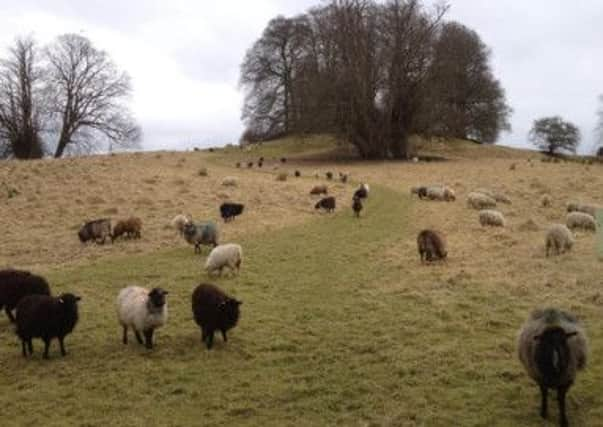UPDATE: NIEA to go ahead with contentious sale of rare breeds from Tullyhogue and Peatlands


The move has been slated by conservation groups such as The Rare Breed Survival Trust who are worried many of animals, including roughly 40 very special Shetland cattle, will end up being slaughtered.
It was reported in our sister publication Farming Life that Shetland cattle are currently classified as ‘at risk’ on the RBST Watchlist with less than 750 breeding females remaining worldwide.
Advertisement
Hide AdAdvertisement
Hide AdA whistle blower previously told the Mail that NIEA had put hundreds of thousands of pounds into developing these herds since 1999.
Rare breeds like the Landes de Bretagne, Shetland and Hebridean sheep which were held on conservation sites such as Tullyhogue Fort, Castle Archdale, Clogher Hillfort and Peatlands Park, were chosen specifically for the nature of those grounds he said.
But it has been confirmed that NIEA now plan to let the sites to commercial farmers, whom they say will be entitled to subsidies from the Department of Agriculture, even though NIEA itself never claimed for the upkeep of these sites according to him.
A DOE spokesman told the Mail: “The sheep managed from Peatlands Park are currently held on land at Montiagh’s Moss but will be taken to the RBST Sale at Gosford on 6 September.”
Advertisement
Hide AdAdvertisement
Hide AdWhen asked about what will happen the stags at Castle Archdale, whom the public often visit, he said: “The deer are to be re-homed and NIEA is exploring possible keepers for them.”
On the issue of the Shetlands, they added: “Most of the Shetland cattle are currently at Castle Archdale Country Park and [it] is anticipated that they all will be sold at Gosford.”
The whistle-blower, who said they have worked for NIEA for a number of years, told this paper staff on the ground were upset by the move, and that he is concerned there is little market for these animals and that they will end up as “beefburgers”.
He also raised concerns over the move to let conservation sites to commercial farmers, saying the livestock they have are unsuitable for the sites.
Advertisement
Hide AdAdvertisement
Hide AdDOE said in response: “Around 284 livestock will be sold or re-homed and while non-breeders may go into the meat trade, the sale is being organised through the Rare Breeds Survival Trust whose members have considerable interest in preserving rare breed bloodlines.
“The Agency has been buying and selling its own rare breed livestock for some time to help graze its nature reserves.
“Much has been learned about how best to help the conservation condition of grassland habitats.
“Now, instead of using its own livestock NIEA will licence the grazing of its pastures to commercial farmers who will be provided with detailed prescriptions regarding preferred animals, stocking rates and periods for grazing.
Advertisement
Hide AdAdvertisement
Hide AdThey added: “Farmers who are successful in applying for licenses to graze NIEA lands will be eligible to apply for associated agricultural subsidies, providing benefits to them and the wider economy.”